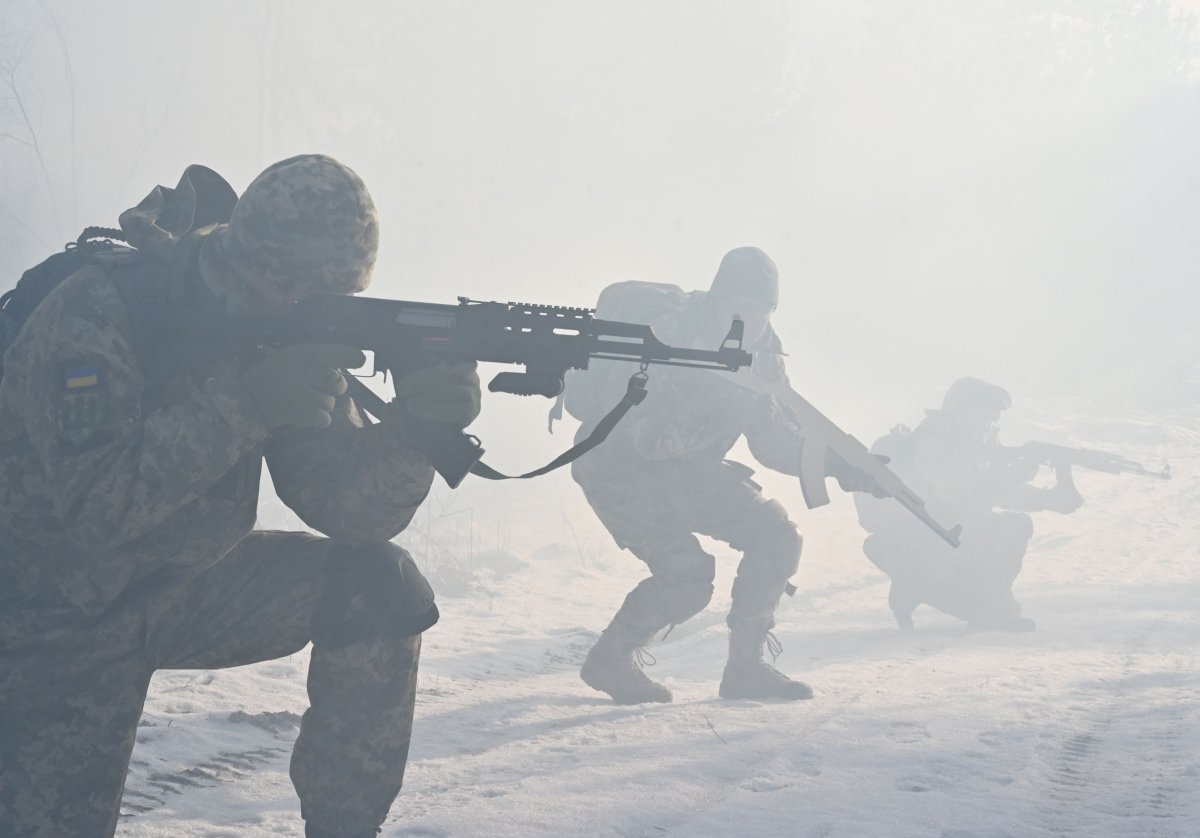Russia has dismissed U.S. claims that it placed saboteurs in Ukraine to conduct a pretext for an invasion, following a week of failed diplomacy which saw no respite in tensions between Moscow and the West.
The Russian embassy in Washington, D.C., refuted the claims made by the White House spokeswoman Jen Psaki, who has accused Russia of conducting a "false flag operation in eastern Ukraine."
Psaki said on Friday that the Russian operatives were "trained in urban warfare and were using explosives to carry out acts of sabotage against Russia's own proxy forces," referring to Moscow-backed separatists in eastern Ukraine where a bloody war has been raging since 2014.
Pentagon spokesman John Kirby echoed the claims, saying Russia was preparing an operation "designed to look like an attack on Russian-speaking people in Ukraine."
In response, the Russian embassy said in a Facebook post that Russia was "against war," and that "as usual, there is no evidence" behind the White House's claims which it called part of "the ongoing information pressure on our country."
"The unceasing accusations against us in the United States (both at the official level and in the media) are unfounded and cannot have any evidence," said the statement, also reported by Russian media.
"We call on the United States to do substantive work to ensure security guarantees on the basis of the draft treaties proposed by the Russian side."
President Vladimir Putin's press secretary Dmitry Peskov also dismissed the U.S. claims as unfounded. Newsweek has contacted the White House for comment.
Talks this week between Russia, U.S. and NATO officials aimed at defusing tensions stoked by a build-up of Russian troops by the border with Ukraine ended in deadlock.
Moscow wanted progress on a treaty in which it sought a guarantee that the alliance would not accept Ukraine as a member and scale down its presence by Russian borders.
Meanwhile, the U.S. allegations of Russia's wish for a casus belli came on the same day as the European Union expressed fears that a cyber-attack on Ukrainian government websites was a prelude for Russian military action. Moscow has repeatedly said it has no intention of invading Ukraine.
The U.S. has pointed to a spike in social media posts in Russian that back the Kremlin's narrative on Ukraine which follows the pattern preceding Moscow's seizure of Crimea in 2014 that was followed by an insurgency in eastern Ukraine in which 13,000 people died.
The former U.S. ambassador to Kyiv, Steve Pifer said he had changed the view he had at the beginning of December that the cost to Moscow of an invasion of Ukraine in terms of soldiers and sanctions "probably outweigh whatever Putin was hoping to achieve."
"I have become progressively more pessimistic over the last month," he told Newsweek, "I'm not the best predictor of Putin's logic, he operates on a sort of a different thought process there."

Uncommon Knowledge
Newsweek is committed to challenging conventional wisdom and finding connections in the search for common ground.
Newsweek is committed to challenging conventional wisdom and finding connections in the search for common ground.
About the writer
Brendan Cole is a Newsweek Senior News Reporter based in London, UK. His focus is Russia and Ukraine, in particular ... Read more
To read how Newsweek uses AI as a newsroom tool, Click here.








